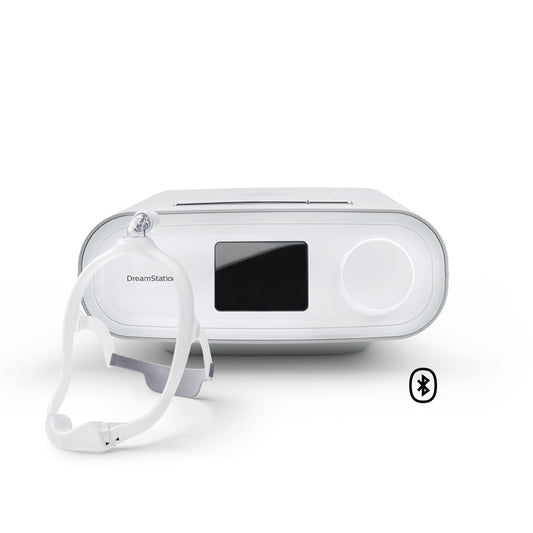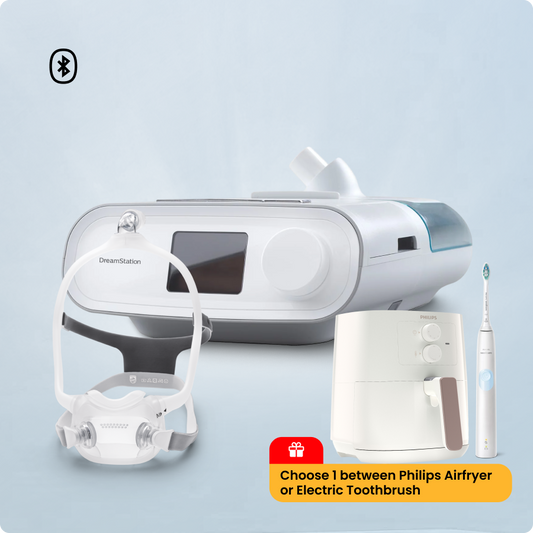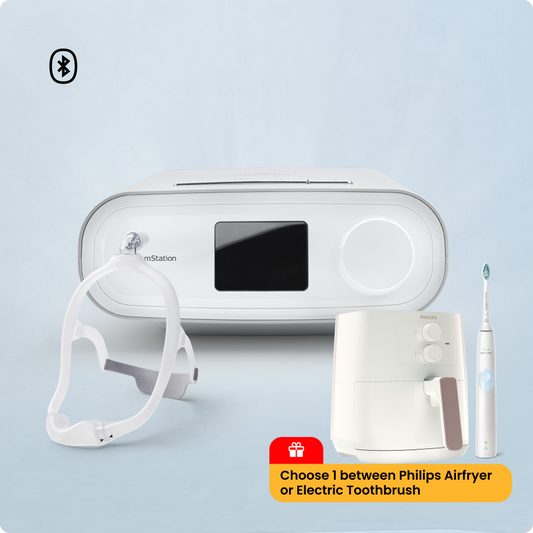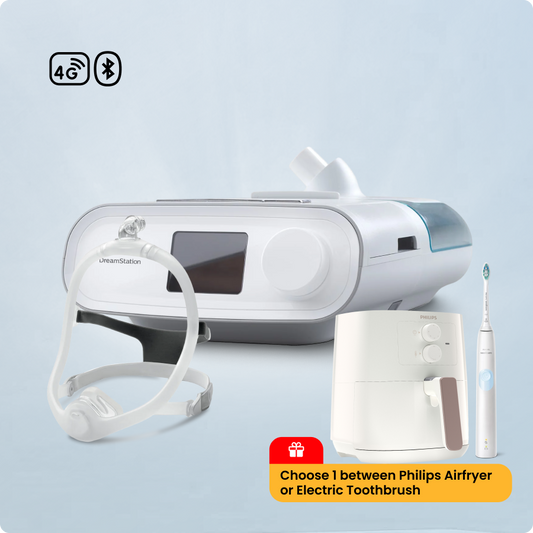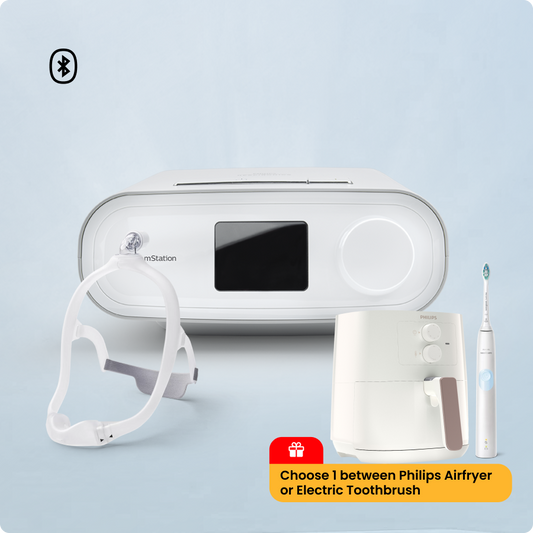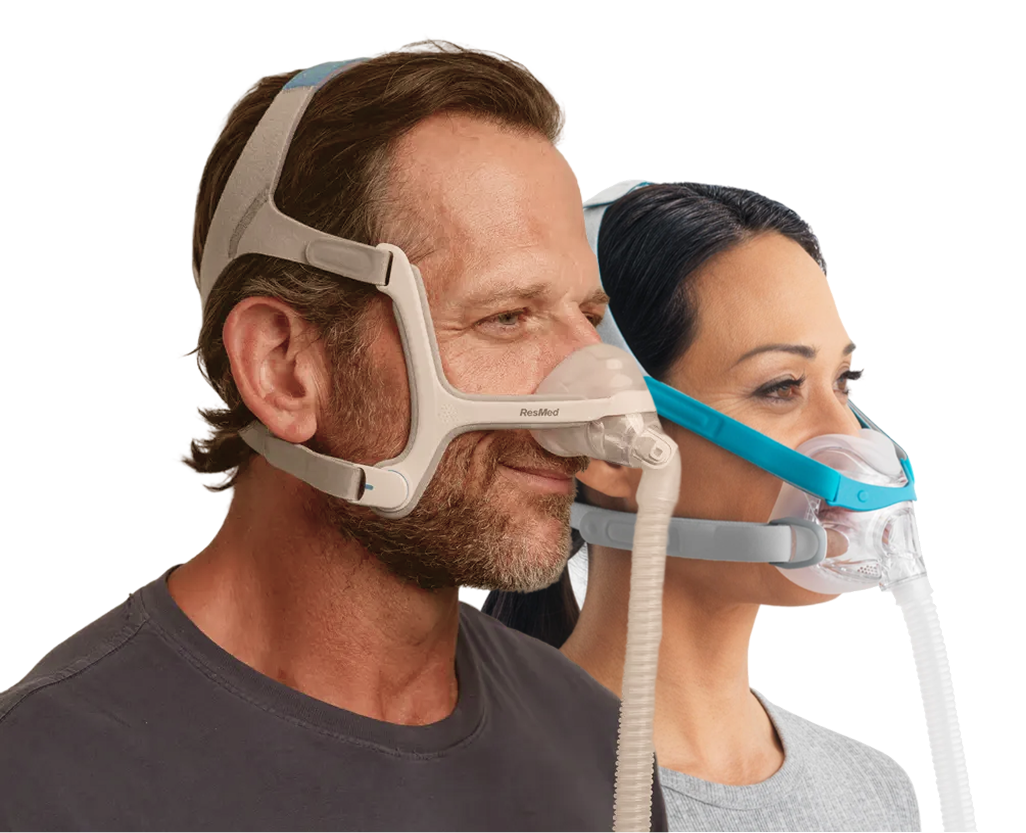Collection: Philips Respironics CPAP Machines
Philips have developed a wide range of automatic CPAP machines, BiPAP machines, fixed pressure machines and travel machines,...
-
Vendor:Philips Respironics
Philips DreamStation Pro CPAP (Bluetooth Only) Machine with 50% Mask Option
1 reviewRegular price $998.00Sale price $998.00 Reg: $1,249.00Unit price / perSold out -
Vendor:Philips Respironics
Philips DreamStation Auto CPAP (Bluetooth Only) Machine with 50% Mask Option
2 reviewsRegular price $1,088.00Sale price $1,088.00 Reg: $1,399.00Unit price / perSale -
Vendor:Philips Respironics
Philips DreamStation Auto CPAP 4G Machine with 50% Mask Option
13 reviewsRegular price $1,488.00Sale price $1,488.00 Reg: $1,779.00Unit price / perSale -
Vendor:Philips Respironics
Philips DreamStation Pro CPAP 4G Machine with 50% Mask Option
6 reviewsRegular price $1,299.00Sale price $1,299.00 Reg: $1,649.00Unit price / perSold out -
Vendor:Philips Respironics
Philips DreamStation BiPAP AutoSV (ASV) Hum HT
Regular price From $3,599.00Sale price From $3,599.00 Reg: $3,999.00Unit price / perFree Shipping View productSale -
Vendor:Philips Respironics
Philips DreamStation BiPAP AVAPS Hum HT
No reviewsRegular price From $3,599.00Sale price From $3,599.00 Reg: $3,999.00Unit price / perFree Shipping View productSale -
Vendor:Philips Respironics
Philips Respironics DreamStation Auto BiPAP HumHT
No reviewsRegular price From $2,395.00Sale price From $2,395.00 Reg: $2,699.00Unit price / perFree Shipping View productSale -
Vendor:Philips Respironics
Philips DreamStation Auto CPAP (Bluetooth Only) with Gift with Purchase
No reviewsRegular price $1,088.00Sale price $1,088.00 Reg: $1,399.00Unit price / perFree Shipping View productSale -
Vendor:Philips Respironics
Philips DreamStation Pro CPAP (Bluetooth Only) with Gift with Purchase
No reviewsRegular price $998.00Sale price $998.00 Reg: $1,249.00Unit price / perFree Shipping View productSold out -
Vendor:Philips Respironics
Philips DreamStation Auto CPAP 4G with Gift with Purchase
No reviewsRegular price $1,488.00Sale price $1,488.00 Reg: $1,779.00Unit price / perFree Shipping View productSale -
Vendor:Philips Respironics
Philips DreamStation Pro CPAP 4G with Gift with Purchase
No reviewsRegular price $1,299.00Sale price $1,299.00 Reg: $1,649.00Unit price / perFree Shipping View productSold out
Philips CPAP Machines & Products
Philips Respironics is a globally recognized brand known for its innovative and advanced respiratory care products, particularly CPAP (Continuous Positive Airway Pressure) machines. These Philips CPAP machines are primarily used to treat obstructive sleep apnea (OSA) by providing continuous airflow, ensuring that airways remain open during sleep. Philips Respironics has been at the forefront of developing CPAP technology that prioritizes user comfort, ease of use, and effective therapy, offering a range of products that cater to different patient needs. You can find these products, including the latest models, at CPAP Discount Warehouse.
DreamStation Series
One of the flagship products in Philips Respironics’ lineup is the DreamStation Series. These Philips CPAP Machines are designed with user convenience and therapeutic effectiveness in mind. Some key features include:
Auto-adjusting pressure: The Philips DreamStation monitors your breathing patterns throughout the night and automatically adjusts air pressure to provide optimal airflow. This feature enhances the overall comfort and efficacy of therapy.
Integrated humidification: To combat dryness and irritation, Philips Respironics DreamStation Humidifier come with an integrated humidifier that can be adjusted to maintain optimal humidity levels, ensuring more comfortable breathing during therapy.
Data tracking and connectivity: DreamStation devices connect to Philips’ DreamMapper app, allowing users to track their therapy data, monitor their progress, and share insights with healthcare providers for better treatment adjustments.
BiPAP Machines
Philips Respironics also offers BiPAP (Bilevel Positive Airway Pressure) BiPAP machines for patients who need more advanced therapy. Unlike Philips Respironics CPAP machine, which provide a single continuous pressure, BiPAP devices offer two levels of pressure higher during inhalation and lower during exhalation. This system is especially helpful for people with more severe respiratory issues or those who struggle to adapt to CPAP therapy. Features like Bi-Flex technology further enhance the comfort of therapy by softening pressure transitions between breaths.
Advanced CPAP Solutions
Philips Respironics stands out in the CPAP market for its commitment to patient comfort and technological innovation. The company offers several advanced solutions that make their Philips CPAP machines more effective and user-friendly.
Humidification Systems
One of the most common complaints from CPAP users is dryness and irritation in the nasal passages and throat. Philips Respironics addresses this with advanced humidification systems integrated into their CPAP machines. DreamStation models, for example, feature adjustable humidifiers with optional heated tubes, ensuring a constant temperature and reducing the likelihood of condensation in the tubing, also known as "rainout."
Auto-adjusting Technology
Philips CPAP machines, such as the DreamStation Auto CPAP, are equipped with auto-adjusting technology. This feature monitors a user’s breathing throughout the night and dynamically adjusts the pressure settings to ensure optimal therapy. Auto-adjusting technology is particularly beneficial for individuals who experience varying levels of airway obstruction during sleep.
Data Connectivity and Tracking
Many Philips Respironics devices come with the ability to track and record sleep data. Through the DreamMapper app, users can access detailed insights into their therapy, including usage hours, pressure settings, and the number of apnea events. This data can be easily shared with healthcare providers to ensure that the therapy is effective and properly calibrated to the user’s needs.
Noise Reduction
Noise is a frequent issue with older CPAP machines, but Philips Respironics has made significant strides in reducing sound levels. The DreamStation, for instance, operates at around 25 decibels, which is considered quiet enough to avoid disturbing the user or their bed partner during sleep.
Is Philips Respironics Right for Me?
Choosing the right CPAP machine depends on various factors, including your specific sleep apnea condition, comfort preferences, and travel habits. Philips Respironics offers a broad range of products that cater to different needs.
+ Comfort and Ease of Use: Philips CPAP machines, especially the DreamStation series, are designed with patient comfort in mind. Features like auto-adjusting pressure, integrated humidifiers, and lightweight masks ensure a comfortable experience.
+ Advanced Data Tracking: If you are someone who values tracking your therapy progress, Philips Respironics offers extensive data tracking capabilities through its connected apps. This allows for better monitoring and fine-tuning of your therapy with the help of your healthcare provider.
+ Portability: For those who frequently travel, Philips Respironics offers the DreamStation Go, a compact and portable version of their full-sized DreamStation models. This travel CPAP machine comes with micro-flexible tubing, making it lighter and easier to pack, and also offers an optional battery for use in places without power outlets.
+ Advanced Therapy Needs: If you require more specialized respiratory support, such as BiPAP therapy, Philips Respironics provides machines equipped with dual pressure settings and advanced comfort features to address more complex conditions.
FAQs
How long does a Philips CPAP machine last?
CPAP machines typically have a lifespan of 3 to 5 years with regular use and proper maintenance. Regular cleaning of the machine, as well as timely replacement of parts like filters, tubing, and masks, can extend the life of the device. Additionally, users should consult their healthcare provider or the manufacturer for advice on when to upgrade or replace their machine.
Why Replace CPAP After 5 Years?
CPAP machines, like any medical device, undergo wear and tear over time. After about five years of consistent use, the internal components can degrade, potentially leading to reduced efficiency. In addition, advancements in technology may offer new features or improvements that enhance comfort, therapy effectiveness, and data tracking. According to guidelines from manufacturers like Philips Respironics, regular replacement of Philips sleep apnea machine ensures optimal performance and better health outcomes for users, while reducing the risk of mechanical failure.
Are There Any Long-Term Side Effects from Using a CPAP Machine?
Philips CPAP machines are generally safe, and many users experience significant health benefits from long-term use. However, potential side effects, especially if the machine is not properly maintained, can include nasal congestion, dryness, or skin irritation from the mask. Using a humidifier or ensuring the correct mask fit can alleviate many of these issues. Philips Respironics products include various features, like integrated humidifiers and adjustable pressure settings, to minimize discomfort and side effects over extended periods of use.
